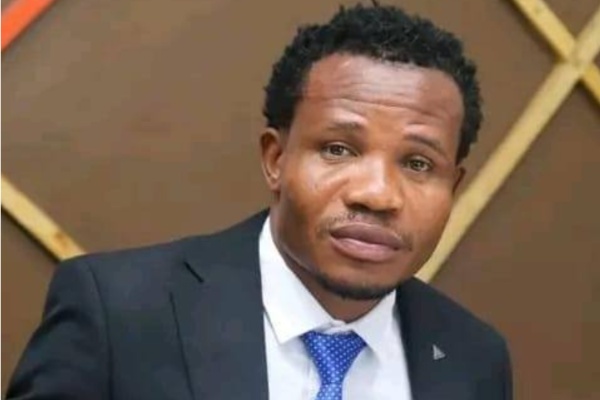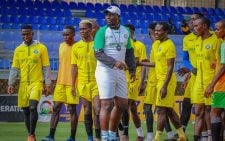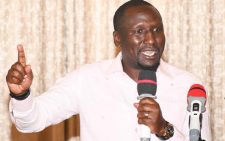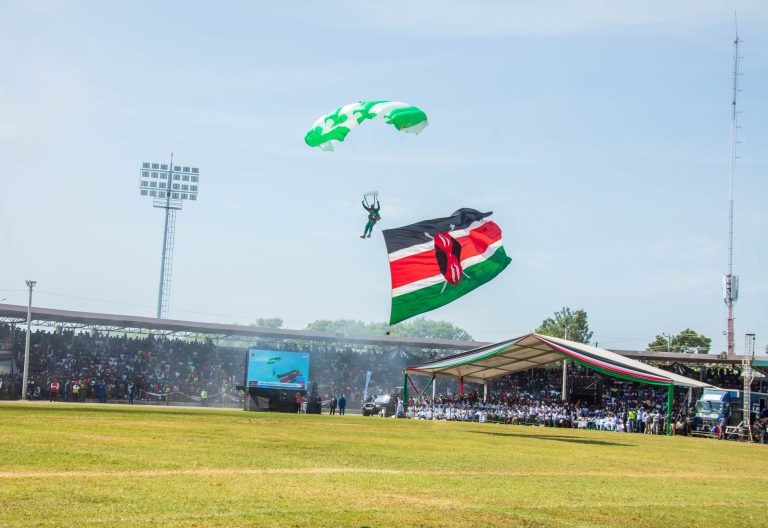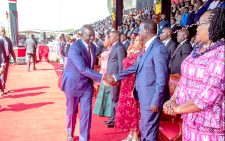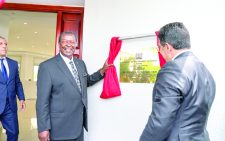On Israeli apartheid in Palestine, let’s listen to Mandela
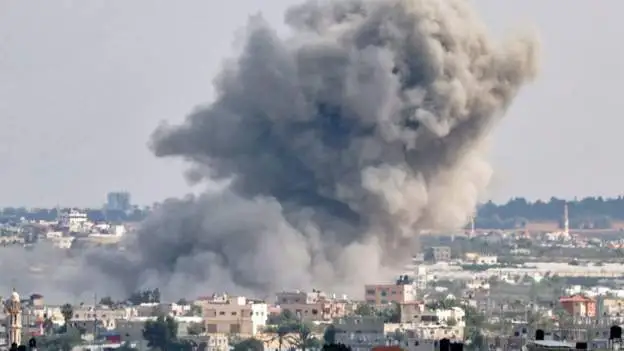
Freedom, integrity and security.
That is how some of us crystallize the conflict in the Middle East. The aura of invincibility over Israeli was ripped off on October 7 when Hamas warriors crossed the impenetrable wall and killed 1,400 people and kidnapped more 200 others.
In retaliation, at least 8,525 people have been killed in Gaza since the war began, including 3,542 children.
There is an emerging discourse that while some world powers have condemned the Hamas killings, they have rationalised the Israeli terrorism in Gaza which has claimed more lives as an act of self-defence.
Voices of reason are saying that there should be no killings and destruction of homes with the common denominator that both Israeli and Palestinian lives matter.
There is no space to recount the history and complexities of the 72-year-old conflict.
But it is largely revolves around the existential threat to the State of Israel and self-determination for the Palestinians who feel persecuted on their own land.
A lot of wisdom has been offered on the handling of the conflict.
But many of us are inclined to the elusive two-State solution that will result in Israeli and Palestinian states lying side by side in peace with defined borders.
America bias, the rising shadow of the Kremlin, suspicion around Iran and the Arab world as well as the timidity of the larger Africa over trade and security ties with Israeli denies the escalation a neutral arbiter.
That is why we are encouraged to buy into the wisdom of the revered South African freedom hero Nelson Mandela and fellow anti-apartheid crusader Desmond Tutu.
After release from prison, Mandela was invited to a town hall meeting in New York in 1990.
He had caused murmurs in the powerful pro-Jewish movement in the US and other rights groups which were hostile to some of his friends.
Surely, it will require a potent mix of courage or perverted folly to want to choose friends for a man who had been in prison for 27 years in the hands of a brutal regime.
But the self-righteous lobbyists felt they had the moral impetus to do so. The atmosphere in the room was both cordial and putrid. But the former boxer was no man to punch under his weight.
The groups seemed angered by Mandela’s expression of solidarity with polarising leaders such as Yasser Arafat of the Palestinian Liberation Organisation (PLO), Cuba’s Fidel Castro and Libyan strongman Mohammed Gaddafi.
The Africa National Congress had made it clear that it considers Israeli which occupies huge territories of Arab land as an “apartheid state” and Arafat’s as a liberation movement.
So Mandela was asked to justify his relationship with Arafat. He didn’t mince his words.
“One of the mistakes that some political analysts make is to think that their enemies should be our enemies. We identify with the PLO because they, like us, are fighting for the right of self-determination. Yasser Arafat is a comrade in arms. The enemies of Israeli are not our enemies,” he said.
We agree about the right of Israel to exist as a state legally with secure borders.
But we don’t think that Israeli has the right to territories they conquered from the Arab world such as the Gaza Strip, the Golan Heights and the West Bank. They should be returned to the Arabs,” said Mandela.
And in 2002, the late Archbishop Tutu said. “I’ve been very deeply distressed in my visit to the Holy Land; it reminded me so much of what happened to us black people in South Africa. I have seen the humiliation of the Palestinians at checkpoints and roadblocks, suffering like us when young white police officers prevented us from moving about.”
Arafat always said that the strength of their resolve lies in the “womb of the Palestinian women.” And Israelites know.
The writer is the political Editor at People Daily, emekamayaka@gmail.com
